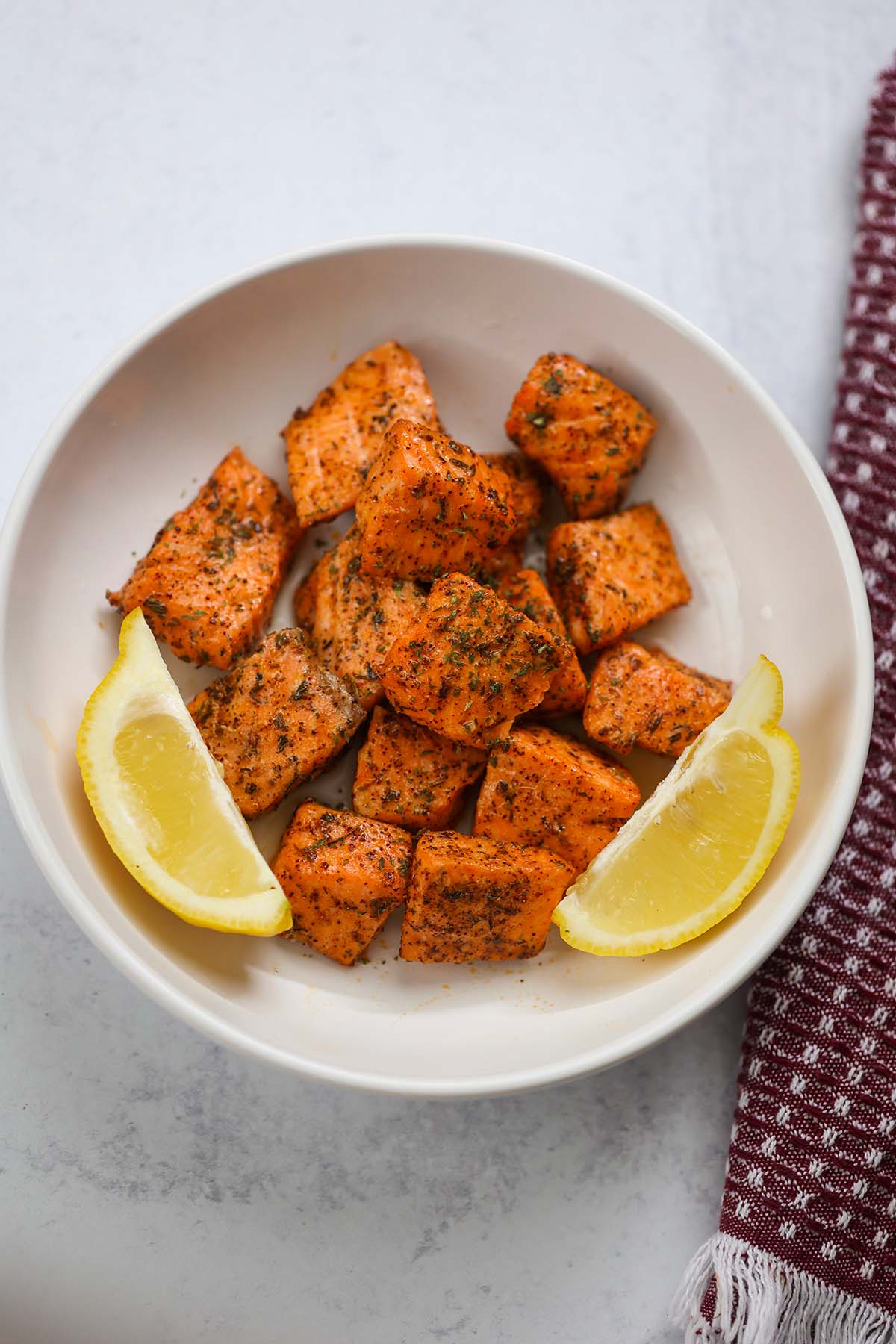Exploring Anise Varieties: Extract, Substitute, Star Anise, Seed, and Oil
Anise extract is a popular ingredient in baking and cooking, known for its licorice-like flavor and aroma. However, if you find yourself without anise extract, there are several substitutes that can work just as well. Whether you’re looking to add a hint of sweetness or a touch of spice, these alternatives will help you achieve the desired taste in your recipes.
Fennel seeds are one of the best substitutes for anise extract. They have a similar licorice flavor and can be used in both sweet and savory dishes. To use fennel seeds as a substitute, crush them slightly to release their oils and then use them in the same quantity as the anise extract called for in the recipe.
Star anise is another excellent substitute for anise extract. It is derived from a different plant than true anise but has a similar flavor profile. Simply grind the star anise into a fine powder and use it in place of anise extract in equal amounts. Keep in mind that star anise is slightly stronger in flavor, so you may want to use a little less if you prefer a milder taste.
If you’re looking for a sweeter substitute, anise-flavored liqueur such as Pernod or Sambuca can be used. These alcoholic beverages have a pronounced anise flavor and can add a unique twist to your recipes. However, keep in mind that the alcohol content will not cook off completely, so this substitute is not suitable for all recipes.
Remember, when substituting anise extract, it’s important to consider the flavor profile of the dish and the intensity of the substitute. Start with a smaller amount and adjust to taste. Experimenting can lead to delightful surprises in your culinary creations!
What is Anise Extract?
Anise extract is a concentrated liquid derived from the seeds of the anise plant, which is native to the Mediterranean region and Southwest Asia. It is commonly used as a flavoring agent in cooking and baking, as it imparts a distinct licorice-like flavor to dishes.
The extraction process involves soaking crushed anise seeds in a solvent, such as alcohol or water, to release the essential oils and flavors. The resulting liquid is then filtered and concentrated to create the extract.
Flavor Profile
Anise extract has a sweet and pungent licorice flavor, which is often described as warm and aromatic. It adds a unique depth of flavor to a variety of dishes, including desserts, breads, and beverages.
Common Uses
Anise extract is a versatile ingredient that can be used in both sweet and savory recipes. Some common uses include:
- Adding flavor to cookies, cakes, and pastries
- Enhancing the taste of breads, such as biscotti and pumpernickel
- Flavoring candies and confections
- Infusing in beverages, such as teas, cocktails, and liqueurs
- Seasoning meats and vegetables
It is important to note that a little goes a long way with anise extract, as its flavor can be quite potent. It is best to start with small amounts and adjust according to personal preference.
Why Look for Substitutes?
There are several reasons why you might need to look for substitutes for anise extract. Firstly, anise extract may not be readily available in your area or at your local grocery store. In this case, finding a suitable substitute can help you continue cooking or baking without having to go out of your way to find the specific ingredient.
Another reason to look for substitutes is if you or someone you’re cooking for has an allergy or intolerance to anise. Anise extract is derived from the seeds of the anise plant, and it has a distinct licorice-like flavor. Some people may find this flavor overpowering or simply dislike it. By using a substitute, you can still enjoy a similar taste profile without the strong anise flavor.
Lastly, cost may be a factor. Anise extract can be quite expensive, especially if you need it in larger quantities or for regular use. Substitutes may offer a more affordable option, allowing you to save money without compromising on flavor or quality.
Whatever your reason may be, there are several excellent substitutes available that can mimic the taste and aroma of anise extract. These alternatives can include ingredients like fennel seeds, star anise, anise oil, or even anise-flavored liqueurs such as ouzo or sambuca.
Best Substitutes for Anise Extract
Anise extract is a popular flavoring agent used in many recipes, but sometimes it may not be readily available or you may simply want to try something different. Fortunately, there are several substitutes for anise extract that can provide a similar flavor profile. Here are some of the best options:
1. Anise Seed
If you have anise seed on hand, you can use it as a substitute for anise extract. Simply grind the seeds to a fine powder and use it in the same proportion as the extract called for in the recipe. Anise seed has a strong licorice-like flavor that can add a distinct taste to your dishes.
2. Fennel Seed
Fennel seed is another good substitute for anise extract. Like anise seed, fennel seed has a similar licorice-like flavor. Grind the seeds and use them in the same measurement as the extract. Fennel seeds are commonly used in recipes for breads, cookies, and desserts.
3. Star Anise
If you’re looking for a substitute that closely resembles the flavor of anise extract, try star anise. This spice comes from the fruit of an evergreen tree and has a strong licorice flavor. Simply grind the star anise and use it in the same proportion as the extract. Star anise is often used in Asian cooking and can add a unique taste to your dishes.
4. Licorice Root
Licorice root is another alternative to anise extract. It has a similar flavor profile and can be used in the same proportion as the extract. Licorice root is often used in herbal teas and can add a sweet, distinct taste to your recipes.
5. Anise Oil
If you can’t find anise extract, you can try using anise oil instead. Anise oil has a concentrated flavor, so you’ll only need to use a few drops in place of the extract. Be careful not to use too much, as the flavor can easily overpower your dishes. Anise oil is commonly used in candies, cookies, and baked goods.
When substituting these alternatives for anise extract in your recipes, remember that the flavor intensity may vary slightly. It’s always best to start with a smaller amount and adjust to taste. Whether you’re making cookies, cakes, or savory dishes, these substitutes can add a touch of licorice-like flavor to your creations.
Fennel Seeds
Fennel seeds are an excellent substitute for anise extract due to their similar taste and aroma. These tiny seeds come from the fennel plant, which is native to the Mediterranean region but is now cultivated worldwide.
The flavor profile of fennel seeds shares many similarities with anise extract. They have a sweet, licorice-like flavor with hints of mint and citrus. This makes them a great option to use when you don’t have anise extract on hand.
To substitute anise extract with fennel seeds, you can simply grind the seeds and use the powder in recipes that call for anise extract. However, since the flavor of fennel seeds is not as concentrated as anise extract, you may need to use a slightly larger amount to achieve the desired taste.
How to Use Fennel Seeds as a Substitute
Here are a few tips for using fennel seeds as a substitute for anise extract:
- Grind the fennel seeds: To release the flavors and aromas, it’s best to grind the fennel seeds using a spice grinder or mortar and pestle. This will also help to distribute the flavor more evenly throughout your recipe.
- Use in moderation: Fennel seeds have a potent flavor, so start with a smaller amount and gradually add more if needed. Remember that the taste may not be as intense as with anise extract.
- Adjust the measurements: Since fennel seeds have a milder flavor than anise extract, you may need to increase the amount used in your recipes. Start by using 1.5 to 2 times the amount of anise extract called for in the recipe and adjust to taste.
- Experiment with complementary flavors: Fennel seeds pair well with ingredients like cinnamon, cloves, and ginger. Consider incorporating these spices into your recipe to enhance the flavor and create a more complex taste profile.
Keep in mind that while fennel seeds can be a great substitute for anise extract in many recipes, they may not work as well in delicate desserts or recipes that require the concentrated flavor of anise extract. In such cases, it’s best to use anise extract or find another suitable substitute.
Star Anise
Star anise is a popular spice that is commonly used as a substitute for anise extract. It is native to China and has a distinct flavor similar to that of anise. Star anise gets its name from its unique star-shaped appearance.
Star anise is often used in both sweet and savory dishes, including soups, stews, desserts, and beverages. It is a key ingredient in many Asian cuisines, particularly Chinese and Vietnamese dishes.
This spice is known for its strong licorice-like flavor, which comes from its essential oils. It adds a rich and aromatic taste to dishes and can enhance the overall flavor profile.
How to Use Star Anise
Star anise can be used whole or ground, depending on the recipe. Whole star anise is often added to dishes during cooking and removed before serving, similar to a bay leaf. It infuses the dish with its flavor while remaining easy to remove.
If using ground star anise, it is essential to measure it carefully, as its flavor can be quite strong. Start with a small amount and adjust to taste.
Substituting Anise Extract with Star Anise
If you are looking to substitute anise extract with star anise, keep in mind that the flavor profile may differ slightly. However, star anise can still provide a similar licorice-like taste to your dishes.
To use star anise as a substitute for anise extract, you can add whole star anise to the dish during cooking and remove it before serving. Alternatively, you can grind the star anise into a powder and use it in small amounts, adjusting to taste.
It’s important to note that star anise is stronger in flavor than anise extract, so you may want to use a smaller amount to avoid overpowering your dish.
Overall, star anise is a flavorful and versatile spice that can be a suitable substitute for anise extract in various recipes.
Anise Oil
Anise oil is a highly concentrated form of anise flavor and is often used as a substitute for anise extract. It is made by extracting the essential oil from anise seeds, which contain a compound called anethole that gives anise its distinctive licorice-like taste.
Anise oil can be used in a variety of culinary applications, including baking, cooking, and even making beverages. It is commonly used in recipes for cookies, cakes, breads, and candies to add a sweet and aromatic flavor. In addition, it can be used to enhance the flavor of savory dishes like soups, stews, and sauces.
When using anise oil as a substitute for anise extract, it is important to note that it is much more concentrated. As a general rule, you should use about one-fourth to one-third of the amount of anise oil compared to the amount of anise extract called for in a recipe. This will help prevent the flavor from becoming overpowering.
Anise oil can typically be found in specialty grocery stores or online. It is often sold in small bottles and should be stored in a cool, dark place to preserve its flavor. Keep in mind that anise oil has a long shelf life, so a small bottle can last a long time.
It is worth noting that while anise oil can be a good substitute for anise extract in most recipes, it may not provide the exact same flavor profile. If you are looking for a true anise flavor, it is best to use anise extract. However, if you are in a pinch or simply prefer the convenience of using anise oil, it can be a great alternative.
Overall, anise oil is a versatile ingredient that can add a rich and aromatic flavor to a wide range of dishes. Whether you are baking cookies or preparing a savory dish, anise oil can be a delicious substitute for anise extract.
Aniseed
Aniseed, also known as anise, is a highly aromatic spice that is commonly used in cooking and baking. It has a sweet and licorice-like flavor that adds depth and complexity to a variety of dishes.
Medicinally, aniseed has been used for centuries for its various health benefits. It is believed to aid in digestion, relieve gas and bloating, and soothe an upset stomach.
Aniseed can be used in both sweet and savory dishes, making it a versatile ingredient to have in your pantry. It is often used in breads, cookies, cakes, and pastries to add a subtle licorice flavor. It can also be used in savory dishes like soups, stews, and marinades to add a unique depth of flavor.
If you don’t have aniseed or anise extract on hand, there are a few possible substitutes you can use. Fennel seeds, star anise, and caraway seeds can all offer a similar flavor profile to aniseed.
Keep in mind that these substitutes may not have the exact same flavor as aniseed, so you may need to adjust the amounts to achieve the desired taste. It is always best to start with a small amount and add more as needed.
Whether you’re baking a batch of cookies or making a savory stew, aniseed can be a wonderful addition to your culinary creations.
Licorice Extract
Licorice extract is another excellent substitute for anise extract. It has a sweet and slightly herbal flavor that is reminiscent of anise. Licorice extract is made from the root of the licorice plant, which is native to certain parts of Europe and Asia.
This extract is commonly used in candies, liqueurs, and herbal teas. It can add a unique and complex flavor to baked goods, such as cookies, cakes, and breads. Licorice extract can also be used to enhance the flavor of savory dishes, such as sauces and marinades.
When using licorice extract as a substitute for anise extract, it is important to note that it has a stronger flavor. Therefore, you may need to use a smaller amount to achieve the desired taste. Start with about half the amount of anise extract called for in the recipe and adjust to taste.
Keep in mind that licorice extract may not be suitable for individuals who have certain medical conditions or take certain medications. It is always best to consult with a healthcare professional before using licorice extract as a substitute.
If you don’t have licorice extract on hand, you can also consider using fennel seeds or star anise as alternative substitutes for anise extract. These ingredients have similar flavors and can provide a comparable taste to your dishes.
Overall, licorice extract is a versatile and flavorful option that can be used as a substitute for anise extract in a variety of recipes.
Q&A: Substitute for anise extract
What is a suitable substitute for 1 teaspoon of anise extract in baking?
Ground anise seed can be a perfect substitute for 1 teaspoon of anise extract in baking.
How can I substitute star anise pods if I don’t have anise extract on hand?
If you lack anise extract, using 1 teaspoon of ground star anise pod can serve as a perfect substitute.
When substituting anise seed in a recipe, should I use the same quantity as anise extract?
When substituting anise seed for anise extract, it’s recommended to use 1 to 2 teaspoons of ground anise seed per teaspoon of extract.
Can star anise be a perfect substitute for anise in recipes that call for anise extract?
Yes, ground star anise can be a perfect substitute for anise extract, offering a distinct anise flavor.
How do I balance the strong flavor of anise when using it in baked goods like cookies?
To balance the strong flavor of anise in baked goods, consider using half a teaspoon of anise extract or ground anise seed.
Is anise extract confused with star anise in recipes?
Anise extract is not to be confused with star anise; they are distinct ingredients, although they share a licorice-like flavor.
Can I use fennel seeds as a substitute for anise seeds in a recipe?
Yes, fennel seeds can be a substitute for anise seeds, providing a strong flavor with a hint of licorice-like taste to your dishes.
What’s the recommended amount when substituting anise seeds for anise extract?
When substituting anise seeds for anise extract, use 1 to 2 teaspoons of ground anise seed for each teaspoon of extract.
How can I ensure the right aroma and flavor when cooking with substitutes for anise?
To ensure you achieve the desired aroma and flavor when using substitutes for anise, adjust the quantity based on your taste preferences.
When cooking my favorite recipes, what should I remember when using different spices as substitutes for anise?
When using different spices as substitutes for anise, remember to start with a smaller quantity and adjust gradually to maintain the balance of flavor in your dish.
What can be a suitable substitute for anise extract when used in baking?
Ground star anise can serve as a substitute for anise extract, especially when used in baking.
How should I substitute anise extract with ground star anise in a recipe that calls for 1 teaspoon?
When substituting anise extract, use 1 teaspoon of ground star anise as a suitable replacement.
Can I substitute 1 teaspoon of anise extract with an equivalent amount of anise seeds?
Yes, you can substitute 1 teaspoon of anise extract with an equivalent amount of ground anise seeds.
Is it common for the taste of anise to be present in recipes that call for star anise?
Yes, the taste of anise is often present in recipes that call for ground star anise.
What is typically made from anise seeds and can be used as a flavoring agent?
Anise extract is commonly made from anise seeds and is used as a flavoring agent in various dishes.
When using anise seeds in a recipe, what is the recommended quantity for flavor enhancement?
It is recommended to use 1 to 2 tablespoons of ground anise seeds when using them to flavor dishes.
In a recipe that includes anise, from which part of the anise plant does the flavor come?
The flavor in a recipe with anise typically comes from the seeds of the anise plant.
How can fennel seeds contribute a licorice-like flavor to dishes when used in cooking?
Fennel seeds can contribute a licorice-like flavor to dishes when used in cooking, adding a distinct taste to your favorite recipes.
Can you use twice the amount of fennel seeds as a substitute for anise seeds in certain recipes?
Yes, using twice the amount of fennel seeds can be a suitable substitute for anise seeds in specific recipes.
What spices work well with seafood when aiming to incorporate anise-like flavors?
Fennel seeds work well with seafood, providing an anise-like flavor that complements various seafood dishes.





